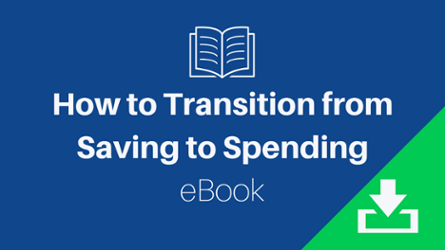Why You’ll (Probably) Die with Money
%20Die%20with%20Money%20(updated)%20-%20Grave%20Stone%20with%20Money%20Bags%20-%20JPEG%20-%202-26-2020.jpg?width=945&name=Image%20-%20Blog%20Image%20-%20Kevin%20-%20Why%20Youll%20(Probably)%20Die%20with%20Money%20(updated)%20-%20Grave%20Stone%20with%20Money%20Bags%20-%20JPEG%20-%202-26-2020.jpg) Leo Tolstoy’s “How Much Land Does a Man Need?” is a tale about a peasant named Pahom who’s only grief is “too little land” and claims, “If I had plenty of land, I’d fear no one—not the devil himself!” In true folkloric tradition, the devil overhears Pahom and decides to send him down a path of desire and temptation.
Leo Tolstoy’s “How Much Land Does a Man Need?” is a tale about a peasant named Pahom who’s only grief is “too little land” and claims, “If I had plenty of land, I’d fear no one—not the devil himself!” In true folkloric tradition, the devil overhears Pahom and decides to send him down a path of desire and temptation.
Presented with the prospect of being granted ownership (for a very small fee) of as much land as he can encircle on foot in one day, Pahom is overjoyed and readily agrees. However, like much in life, there is one important caveat: If he does not return to his starting point by sundown, his money is forfeited and he gets no land at all. After a restless night, Pahom sets off at sunrise and quickly becomes enamored by all the fertile land he sees.
The tale walks the line between the admirable characteristic of ambition and the destructive nature of greed. And while Tolstoy acknowledges hard work and discipline as catalysts for human development, he warns that it's also the space where unchecked ambition can turn to excess at best, and greed at worst.
Needs, Wants and the Space in Between
To be clear, there’s nothing wrong with hard work, saving money, and the acquisition of material things that bring comfort and joy. But a nose-to-the-grindstone commitment to career, combined with a fear-based accumulation of monetary wealth does not make us smart about money. What does make us smart about money is taking the time to figure out what we really need (and want) and then planning accordingly.
Consumption Gap
The classic view of retirement planning is that in the early years we save and invest (accumulation stage) so in the later years we can retire and consume (consumption stage). Essentially, a virtuous “work now, play later” commitment to deferred gratification. But surprisingly, the "play later" part isn't happening. Research conducted by the University of Michigan’s Institute for Social Research found that on average, across all wealth levels, most current retirees still have 80 percent of their pre-retirement savings after nearly two decades in retirement. In essence, the most recent generation of retirees haven't been spending their retirement savings—leaving nest eggs mostly untouched.
Enough
Why people are frugal when they don't have to be is too complicated to fully understand. My suspicion is that some of us simply don't enjoy the passivity of spending, and instead enjoy the challenge of doing things that save and create wealth. Other factors may include a desire to provide children with a degree of safety, or a goal to leave something to a world that made their comfort possible, or perhaps for some, it simply doesn't feel right to waste when so many others have nothing.
However, it’s also possible that some retirees would have preferred to spend more freely but lacked the confidence, or tools, to efficiently consume their assets. Loss aversion, combined with the fear of outliving their retirement assets (longevity risk) are powerful emotional biases and likely the biggest culprits behind this behavior. This suggests that people like me--a practitioner in the financial planning profession--need to be aware of, and openly acknowledge, these potentially harmful biases and incorporate solutions to help mitigate behaviors getting in the way of retirees spending a bit more on themselves.
Pahom’s Fate
Exhausted by the hot sun, and without the measure of time, Pahom hurriedly runs back to the starting point. Dehydrated, breathless and frightened, Pahom pushes himself past his limit, reaching the starting point just as the sun is setting.
And then, he drops dead.
In the last line of his tale, Tolstoy answers the question posed in the title “How Much Land Does a Man Need?” He writes, “Pahom’s workman picked up the spade, dug a grave for his master—six feet from head to heel, which was exactly the right length—and buried him.”
So, how much do we need? Apparently not as much as we thought.
Kevin McVeigh, CFA is a Managing Director and Partner at Exchange Capital Management, a fee-only, fiduciary financial planning firm. The opinions expressed in this article are his own.
Comments
Market Knowledge
Read the Blog
Gather insight from some of the industry's top thought leaders on Exchange Capital's team.
Exchange Capital Management, Inc.
110 Miller Ave. First Floor
Ann Arbor, MI 48104
(734) 761-6500
info@exchangecapital.com




